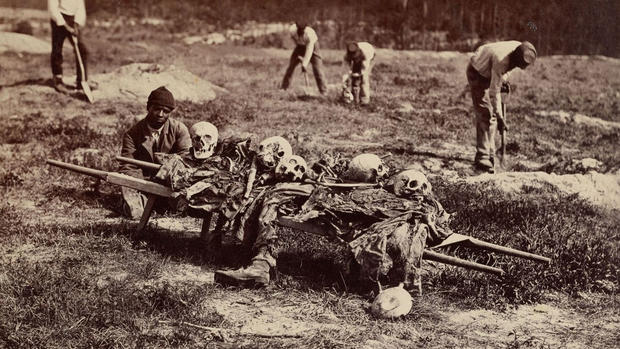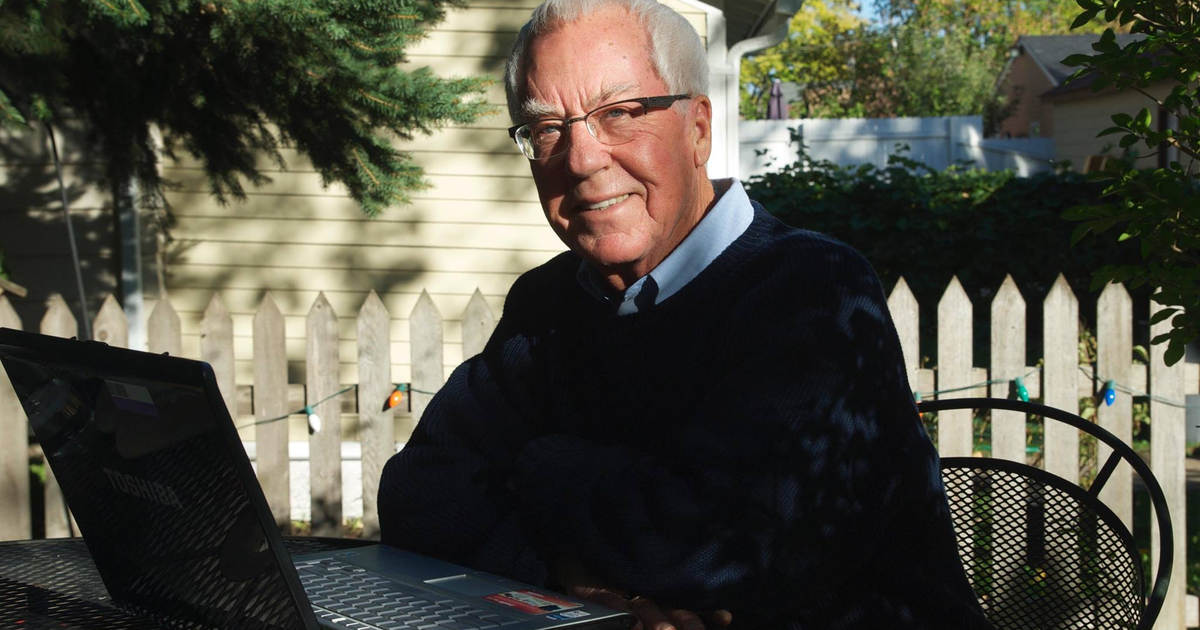Ron Chernow on his latest biography, "Grant"
Ron Chernow, the historian whose award-winning biography of Alexander Hamilton was the basis of the hit Broadway musical, is back with his seventh book, "Grant" (Penguin). It chronicles the life of Civil War general and 18th President Ulysses S. Grant.
On "CBS This Morning" Monday, Chernow was asked what attracted him to writing about Grant.
"Well, I've always had this fantasy of writing a big sweeping saga about the Civil War and Reconstruction," he said, "and Grant is the person who's at the center of that. It's really two acts of the same drama. And just if you look through the prism of Ulysses S. Grant, everything significant that happens between 1861 and 1877, he's right smack at the center of it."
Co-anchor Charlie Rose asked, "What made him the great general he was?"
"Grant captured three Confederate armies — at Fort Donelson in 1862, at Vicksburg in 1863 and most famously at Appomattox in 1865," Chernow said. "And yet, Lee is the one who's romanticized as the great general. Robert E. Lee never captured a Union army.
"Grant was decisive, he was determined, he was aggressive, and — unlike Lee, who had plans for winning individual battles — Ulysses S. Grant had a strategy for winning the entire war."
He did that, Chernow explained, by taking all the Union armies which had been operating independently and coordinating them so that they functioned as a single fighting unit.
"Grant respected Lee, but he also thought that Lee was highly overrated," Chernow noted. "He said Robert E. Lee was a man who needed sunshine. He felt that Lee was actually politically operating in a much easier environment in the South where he was constantly glorified, [whereas] in the North — where there was a lot of anti-war sentiment, the so-called 'Copperhead Democrats' — Grant felt that he was constantly being denigrated from his own side.
"Lee had a lot of advantages. Grant had more advantages in terms of manpower, but Lee was fighting on home territory, Lee was fighting a defensive war, which is much easier, Lee had all these spies which who could track the Union movements, and Grant had to protect these very long supply lines going down from the North to the South."
Chernow says one goal of his book was to change the terms of the historical controversy over Grant's drinking, from "Was Grant a drunkard?" to "Was Grant an alcoholic?"
Co-anchor Gayle King asked, "What's the difference between a drunkard and an alcoholic?"
"Drunkard is a Victorian term; it implies that drinking is a moral failing," Chernow said. "Nowadays we know that alcoholism is a chronic disease, and Grant had it. Once he took one drink, he could not stop drinking. It triggered often extreme personality change. He became a rather jovial and silly personality.
"And one thing I discovered is there was a definite pattern to his drinking. A lot of people in good faith say, 'I never saw Grant drink.' But what he would do, he would not touch a drop of alcohol for two- or three-month periods. After a major battle he would then go up to a small town on a side trip, have a two- or three-day bender that his officers and his men never saw, and then he would come back, as William Tecumseh Sherman said, 'fresh as a rose.' When I tell this story to my friends in AA, they all said the same thing: Ulysses S. Grant was a high-functioning alcoholic."
Chernow also settled the controversy over whether Grant's friend and publisher Mark Twain had ghost-written Grant's autobiography, published in 1885 soon after Grant's death, which is often called the greatest memoir ever written by a U.S. president.
It was a book Grant did not want to write.
"The year before he died he was financially wiped out by the Bernie Madoff of his day," Chernow said. "At the same time he was diagnosed with cancer of the tongue and throat and in excruciating pain."
He wrote the memoir — as much as 10,000 words a day — during the last year of his life. Chernow examined the original manuscript at the Library of Congress and confirmed it was all in Grant's own handwriting.
In fact, Twain said of Grant's memoirs, "Their style is flawless … no man can improve upon it."
- Ulysses S. Grant's last battle ("Sunday Morning," 02/17/13)
What made Grant such a good writer?
"Grant had always prided himself on his writing. He wrote all of his wartime orders. He wrote all of his own speeches as president, and he was also considered a great raconteur. So in a way it's not surprising that he produced what is now thought to be the greatest military memoir in American letters."
And what of Chernow's biography? "Is this a musical or not?" Rose asked.
"I think it's safe to say that Grant's life does not move to a hip-hop beat," Chernow laughed. "But I'm hoping it will be a film!"
- "Grant" by Ron Chernow (Penguin), in Hardcover, eBook, Digital Audio Download and Audio CD formats. Available via Amazon






